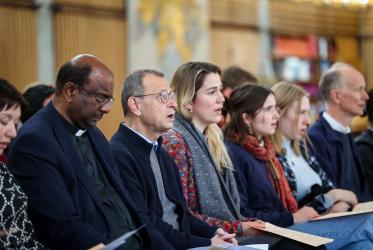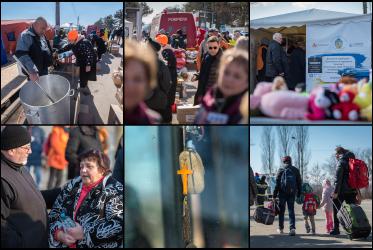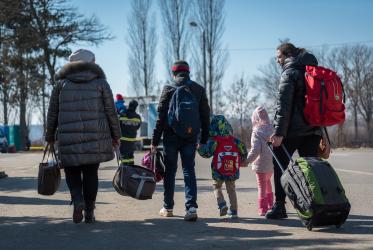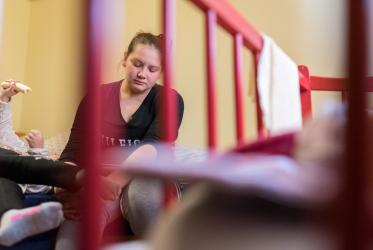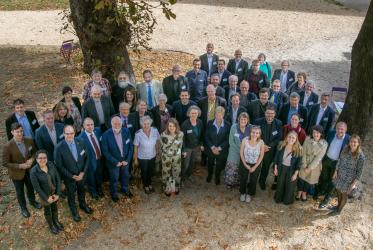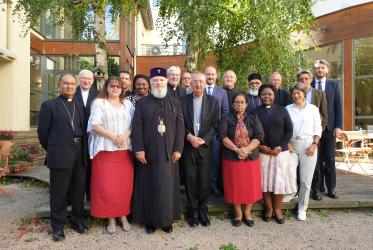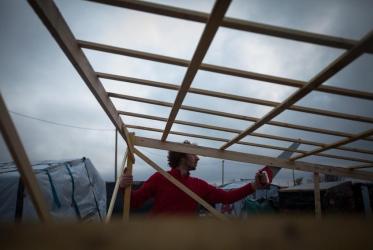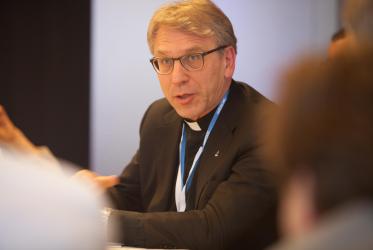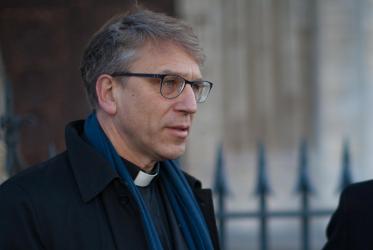Displaying 1 - 20 of 39
Christ’s Love (Re)moves Borders – GETI 2022 in images
13 September 2022
Churches should use their voice on climate change
26 February 2020
WCC well-represented in Religions for Peace leadership
07 October 2019
Christian communicators work to counter hate speech against refugees
10 December 2018
Youth gather in Basel for Taizé pilgrimage
15 January 2018
WCC/UN conference calls for coordinated action on refugee crisis
20 January 2016
One refugee’s story: from Syria to France
07 January 2016
WCC general secretary addresses High Level Segment of COP21
09 December 2015
WCC general secretary shares signs of hope on the eve of COP21
29 November 2015
